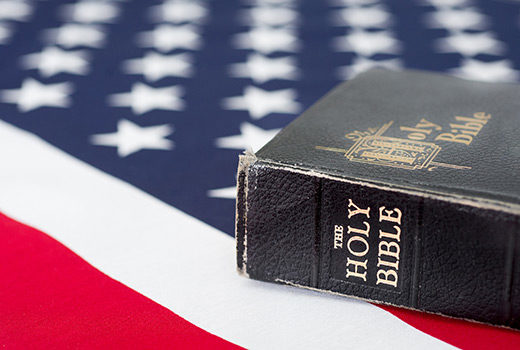In the past decade I’ve noticed a rising aversion to mentioning any national holidays in worship services. Increasingly it seems that pastors do not want to preach sermons in any way related to the nation for fear that they might be worshiping the country and not God in their worship services. While I commend any pastor who contends that our corporate worship services must focus on God, national holidays allow opportunities to shepherd our people and contextualize the Gospel from the pulpit.
While most Christians should agree that the sacrifice we remember on Memorial Day and the freedom we celebrate on Independence Day are both pale shadows to the sacrifice of Christ and the freedom He grants to believers, at what point in the life of American churches do we voice these truths as pastors? How do we help our people understand the biblical witness regarding sacrifice and freedom we see in the Gospel and how they are very different than any temporal sacrifice or freedom? Why not seize the opportunity to preach truth regarding these weighty Gospel issues when words like “sacrifice” and “freedom” are on the minds of most Americans during these holidays? In so doing, we can help transform these holidays into holy days.
In addition, what opportunities do we take as pastors to help our people understand what it means to be a citizen and to exercise one’s faith in the public square? Would not these holidays offer excellent platforms upon which to declare the Word of God as it relates to those issues? If we do not address them, who will? If we are depending upon blog posts or books to shepherd our people regarding these issues, we are neglecting our responsibility as pastors to lead our people regarding what it means to be Christian citizens.
Any student of history will discover a plethora of examples of pastors who preached such sermons in an effort to shepherd their people in times of national elections and national holidays. In 1794, on an election day anniversary, Jonathan Edwards Jr. preached a message focused on the passage, “Blessed are the people whose God is the Lord” (Psalm 144:15 ESV). He described what Christian citizens should look like and how their influence in the public square should have a positive impact upon the nation.
Baptist pastor John Leland, who was influential in the creation of the First Amendment’s protection of religious liberty, preached a message entitled “The Rights of the Conscience Inalienable.” Leland provided his congregation with clear direction regarding how we will all give account to God for our worship or lack thereof; therefore, our consciences must be free in such worship, as we will be responsible for how we do so. This message helped his congregation understand a biblical approach to religious liberty.
In his sermon preached on July 4, 1793, Samuel Miller, professor of church history at Princeton Theological Seminary, expounded on Paul’s words, “Now the Lord is the Spirit, and where the Spirit of the Lord is, there is freedom”(2 Corinthians 3:17 ESV). While he explained that the passage refers to the freedom from captivity to sin that the Gospel provides, Miller contended that Christians who possess such freedom influence political freedoms in the nation in which they serve as citizens. Describing their positive impact upon governments, he stated, “When, therefore, that perfect law of liberty, which this holy religion includes, prevails and governs in the minds of all, their freedom rests upon a basis more solid and immovable than human wisdom can devise.”
The above examples are just a few of the many sermons preached throughout church history where pastors utilized national holidays or important days in the life of the nation to serve as a springboard for sermons that communicated transcendent truths and applied them to temporal realities regarding the nation. We would do well to follow their example.
I’m not calling for you to purchase confetti cannons for a Fourth of July service. I’m not proposing that we preach sermons that exalt the nation rather than exalting Jesus. I am contending that we can miss opportunities to contextualize the Gospel and shepherd our congregations regarding Christian citizenship and faith in the public square when we ignore these significant national days in our preaching and worship.


